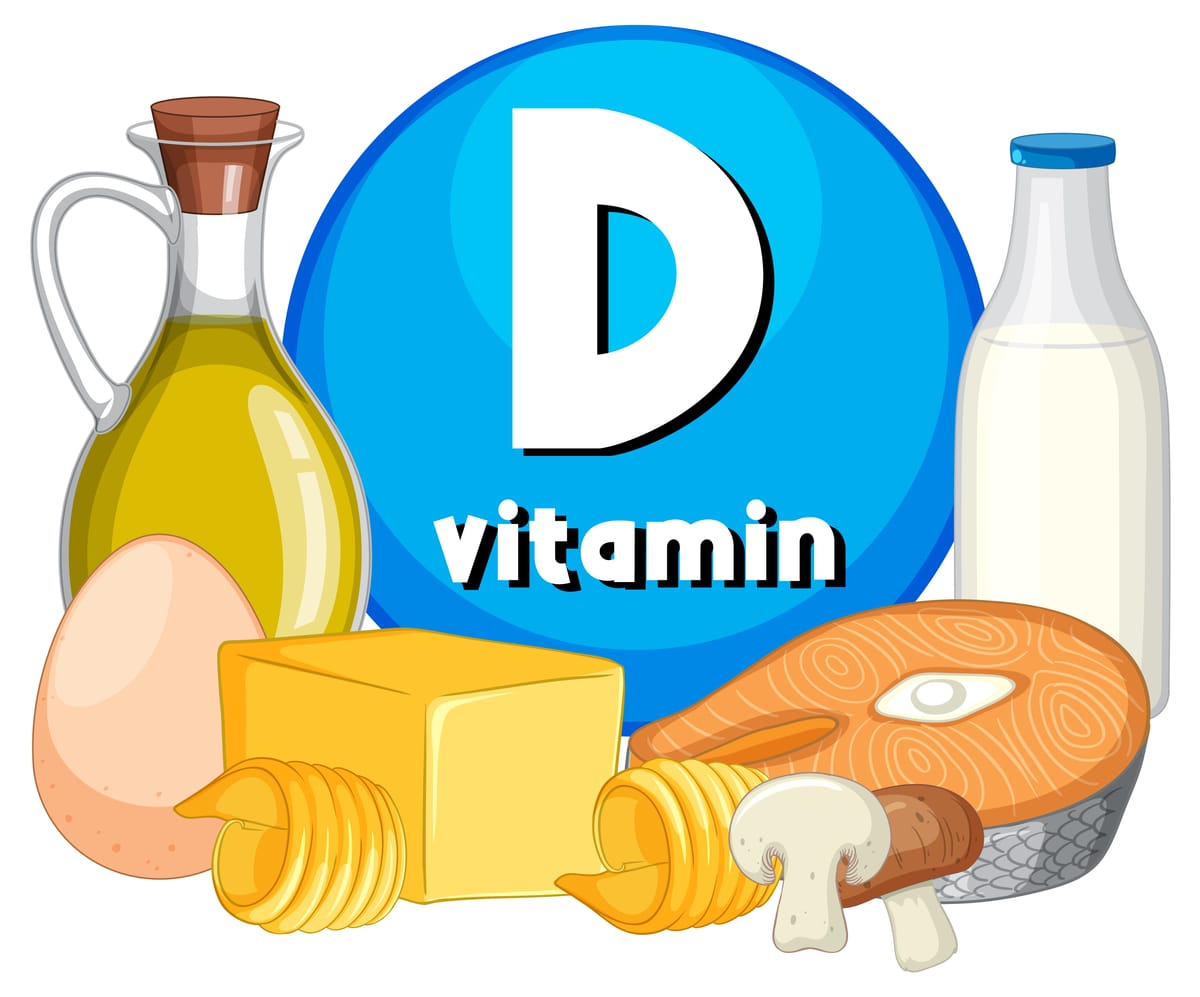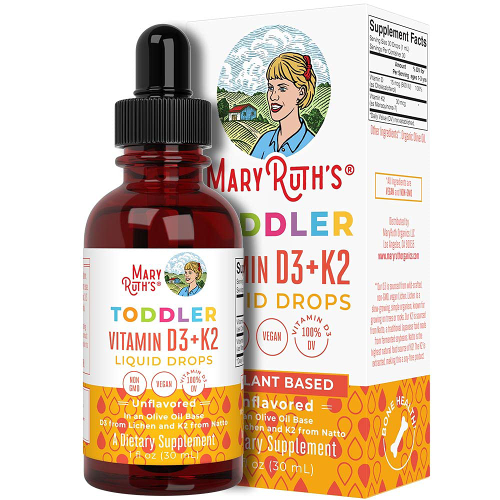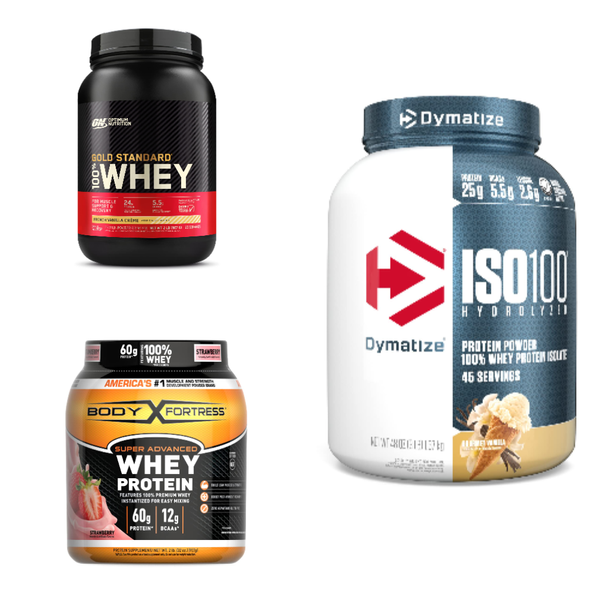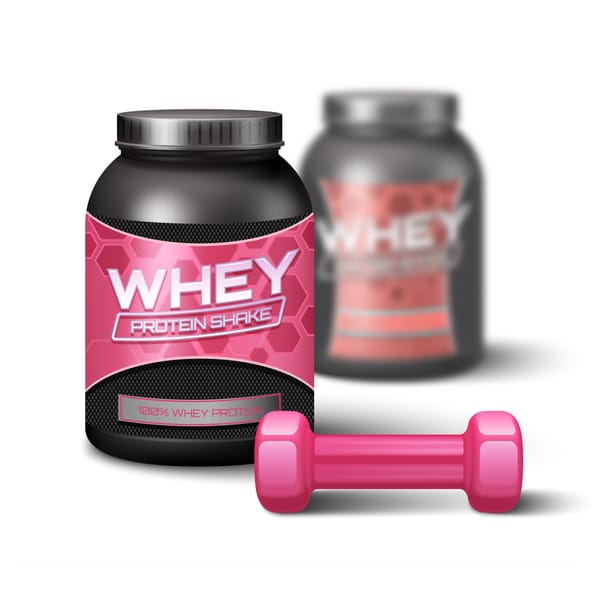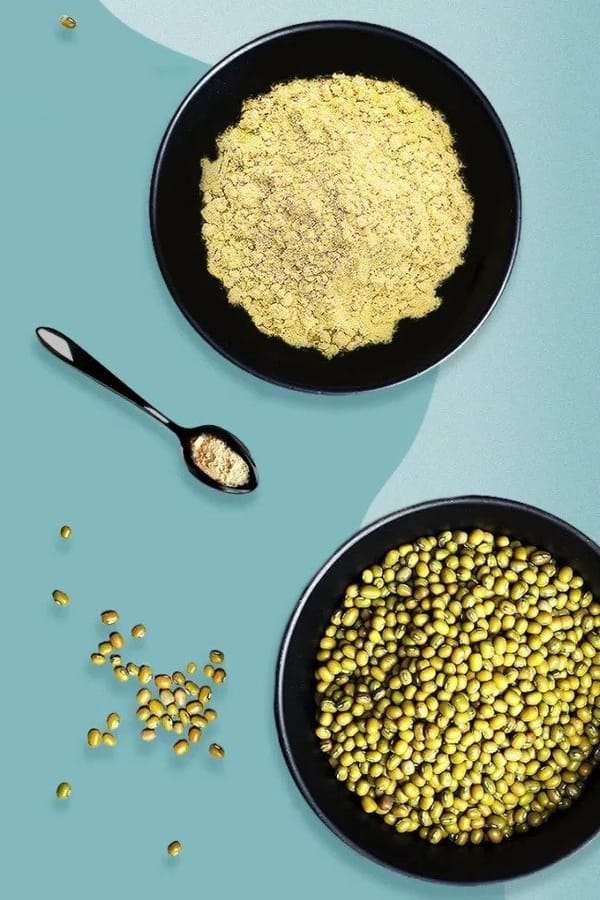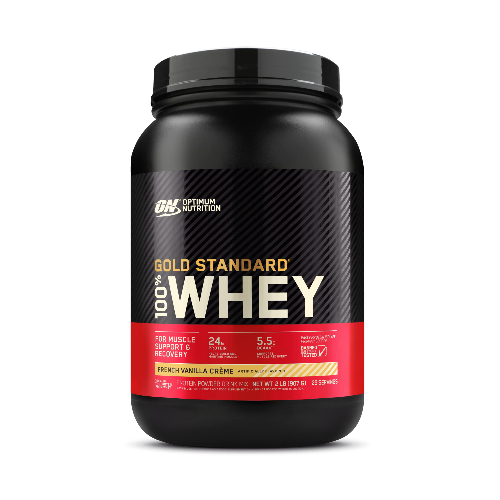Vitamin D is essential for children's growth and development, particularly for bone health and immune function. However, with the prevalence of indoor lifestyles and concerns about skin cancer from sun exposure, ensuring that kids get enough vitamin D can be a challenge. This article will explore the best natural sources of vitamin D for kids, how to incorporate them into your child's diet, and the importance of balancing sun exposure with dietary intake.
Sunshine: The Primary Source of Vitamin D
The sun is the most well-known source of vitamin D. When skin is exposed to sunlight, specifically UVB rays, it triggers the synthesis of vitamin D in the body. However, factors such as geographic location, skin pigmentation, and sunscreen use can affect how much vitamin D is produced. While sun exposure is vital, it's important to balance it with the risk of skin cancer by following safe sun practices.
Dietary Sources: Vitamin D Rich Foods
Only a few foods naturally contain significant amounts of vitamin D, but they are powerful sources for boosting your child's intake. Fatty fish like salmon and mackerel, as well as fish liver oils, are among the most potent natural food sources. Egg yolks also offer a small amount of vitamin D, which can accumulate with regular consumption.
Fortified Foods: A Helping Hand
Since natural food sources of vitamin D are limited, many countries have introduced fortified foods to help prevent vitamin D deficiency. Vitamin D-fortified milk, infant formula, and cereals are readily available and can significantly contribute to a child's daily vitamin D intake. Fortified cow's milk and plant-based alternatives like soy milk are excellent options for children to obtain vitamin D, especially for those with a dairy allergy.
The Role of Supplements: When Diet Isn't Enough
Vitamin D supplements can be a reliable source of vitamin D for kids, particularly for those at risk of deficiency. This includes breastfed babies, children with dark skin, and those with conditions like cystic fibrosis or inflammatory bowel disease. Liquid supplements and chewable vitamins are available to ensure that even the youngest kids can get their daily vitamin D.
Understanding Vitamin D Deficiency in Kids
Vitamin D deficiency can lead to rickets in children, a condition that causes soft, weak bones. Symptoms may include delayed growth, muscle pain, and weakness. Risk factors for deficiency include having dark skin, living in northern latitudes, and having medical conditions that affect how the body absorbs nutrients.
How Much Vitamin D Do Kids Need?
The dietary reference intakes for vitamin D vary by age. Babies younger than 12 months need 400 IU of vitamin D daily, while older children and adolescents require 600 IU. It's essential to know the safe upper limit for vitamin D to avoid toxicity, as too much vitamin D can be harmful.
Balancing Sun Exposure and Vitamin D Intake
While sun exposure is a natural way to get vitamin D, too much can increase the risk of skin cancer. Parents should encourage kids to wear sunscreen and seek shade during peak sun hours. At the same time, they should ensure their child's diet includes enough vitamin D-rich foods or supplements.
Vitamin D Enrichment in Everyday Beverages
Did you know that a glass of orange juice can do more than just wake you up in the morning? Many brands have started fortifying their orange juice with added vitamin D, making it a delicious and convenient way to boost your child's vitamin levels. This is especially helpful for kids who might be picky eaters or those who need a little extra help getting their daily nutrients.
Moreover, fortified cow's milk is another staple in most children's diets that often comes enriched with vitamin D. It's a comforting thought that something as simple as a child's morning cereal or their favorite glass of milk can contribute to their daily vitamin D intake. So, next time you're at the grocery store, take a moment to check the labels for these vitamin D-enriched options!
Vitamin D and Seasonal Changes: Adapting Your Child's Diet
As the seasons change, so does the availability of natural sunlight, which can significantly impact your child's vitamin D level. During the darker months, it's crucial to adapt your child's diet to ensure they're getting enough of this essential nutrient. Light canned tuna, for instance, is a convenient and affordable option that's rich in vitamin D and can easily be incorporated into meals. Whether it's added to a sandwich or mixed into a pasta dish, it's a simple way to boost vitamin D intake when sunshine is scarce.
Moreover, most kids love cheese, and it's another food that can be fortified with vitamin D. Including vitamin D-fortified cheeses in your child's diet can help maintain adequate levels throughout the year. From grilled cheese sandwiches to cheesy omelets, there are endless ways to make these tasty and nutritious additions appealing to kids. Remember, the goal is to ensure that your child's vitamin D intake remains consistent, regardless of the season.
Vitamin D Fortification in Plant-Based Milks
With the rise of dietary preferences and restrictions, plant-based milk has become a staple in many households. But did you know that these alternatives can also be a source of vitamin D, just like fortified cow's milk? Many brands are now enriching their almond, soy, and oat milk with vitamin D, ensuring that children who prefer or require non-dairy options still receive this essential nutrient. This is particularly beneficial for vegan families or those dealing with lactose intolerance, as it seamlessly integrates into a child's diet without compromising on their nutritional needs.
Moreover, the fortification of plant-based milk offers a versatile way to boost a child's vitamin intake. Whether it's a glass of fortified almond milk with breakfast or a soy-based smoothie after school, these fortified beverages can play a crucial role in maintaining adequate vitamin D levels. Parents should, however, be vigilant about reading labels to ensure that the plant-based milk of choice does indeed contain added vitamin D, as not all brands include it.
Exploring Outdoor Activities to Boost Your Child's Vitamin D Levels
Have you ever considered how a simple game of tag or a family hike could be a secret weapon in your child's diet for maintaining optimal vitamin D levels? It's true! Outdoor activities not only promote physical fitness but also expose kids to sunlight, which is crucial for the synthesis of vitamin D. Encouraging your child to play outside for a moderate amount of time can significantly contribute to their daily vitamin D intake, especially during the sunnier parts of the day.
While we're on the topic of outdoor fun, let's not forget about the sports and activities that can be both enjoyable and beneficial for your child's vitamin D levels. Whether it's a soccer match in the park or a swim at the local pool, these activities offer a double whammy of health benefits. They not only aid in the development of strong bones and muscles through physical exertion but also help in the natural production of vitamin D through sun exposure. Just remember to apply sunscreen to protect their skin after they've soaked up enough vitamin D!
Vitamin D in Homemade Baby Foods: A Natural Boost
When it comes to enriching your child's diet with essential nutrients, homemade baby foods can be a game-changer. By incorporating vitamin D-rich ingredients like salmon puree or egg yolks, you can naturally boost your child's vitamin intake. It's a comforting thought for parents to know exactly what goes into their baby's meals, and with a little creativity, these homemade delights can be both nutritious and delicious. Plus, they offer a great alternative for those times when fortified cow's milk or formula isn't on the menu.
Crafting these meals isn't just about the nutritional value; it's also an opportunity to introduce your child to a variety of flavors and textures. Think about blending cooked spinach—a source of vitamin D—into a smooth puree for your little one. Not only does this help with their bone health, but it also lays the groundwork for healthy eating habits as they grow. Remember, though, that while homemade foods can complement your child's diet, it's important to discuss any dietary changes with a pediatrician to ensure all nutritional needs are met.
Engaging Vitamin D Activities for Family Bonding
Let's talk about turning vitamin D intake into a family affair! Engaging in outdoor activities is not just beneficial for your child's vitamin levels but also for strengthening family bonds. Whether it's a weekend hike, a day at the beach, or simply playing in the park, these moments allow your child to soak up the sun and create lasting memories. And while they're having fun, they're also getting a healthy dose of that sunshine vitamin, which is crucial for their growing bodies.
But what about those cloudy days or busy schedules that keep you indoors? No worries! You can still support your child's vitamin D levels by planning indoor activities that mimic the great outdoors. Setting up a small indoor garden where your child can grow herbs or vegetables is an excellent way to teach them about nature while also potentially enhancing their diet with vitamin D when they harvest their produce. It's all about finding creative ways to ensure your child's vitamin needs are met, come rain or shine.
The Evolution of Vitamin D Options in Child Nutrition
In the ever-evolving world of child nutrition, it's fascinating to see how options for ensuring adequate vitamin D intake have expanded. Fortified cow's milk has long been a staple in many households, providing a reliable source of vitamin D for children. It's a convenient way to incorporate this essential nutrient into a child's diet, especially for those who may not get enough exposure to sunlight or have dietary restrictions that limit their intake of other vitamin D-rich foods.
For formula-fed babies, the attention to vitamin D doesn't stop at the sun's rays. Infant formulas are meticulously designed to mimic the nutritional profile of breast milk, and as such, they are fortified with vitamin D to support a growing baby's needs. This fortification is crucial, as it ensures that formula-fed babies receive an adequate amount of vitamin D for proper bone development and overall health, even when breastfeeding isn't an option. It's a testament to the scientific advancements in child nutrition, ensuring that all babies have the opportunity to thrive.
The Role of Vitamin D in Cognitive Development
The importance of vitamin D extends beyond just bone health; it's also been linked to cognitive development in children. Emerging research suggests that adequate vitamin D levels are associated with better brain function and may even influence cognitive skills like memory and problem-solving. Ensuring that a child's diet includes sufficient vitamin D, whether through sunshine, food, or fortified formula, is crucial for their overall development. This is especially pertinent during the early years when the brain is rapidly growing and developing.
In the context of formula-fed babies, choosing a vitamin D fortified formula can be particularly advantageous. These formulas are designed to mimic the nutrient profile of breast milk, which naturally contains vitamin D. By opting for a fortified formula, parents can help support their child's cognitive development right from the start. It's a simple yet effective way to contribute to the building blocks of a child's brain health, setting the stage for a lifetime of learning and discovery.
The Relationship Between Vitamin D and Physical Activity in Children
Physical activity plays a more significant role in your child's vitamin D status than you might think. When kids are active outdoors, they're not only exercising their bodies but also soaking up the sun, which helps their skin produce vitamin D. Encouraging outdoor play is a fantastic way to combine fun with health benefits. Whether it's a game of tag in the backyard or a soccer match in the park, these activities contribute to your child's vitamin D level and overall well-being.
However, it's important to note that while outdoor activities are beneficial, they should be balanced with safe sun practices to protect your child's skin. The use of sunscreen, while essential, can reduce vitamin D synthesis. Therefore, it's wise to consider vitamin supplements or a child's vitamin that's specifically formulated to support their growing needs. This way, you can ensure that your child gets enough calcium and vitamin D for strong bones, even when they're wearing sunscreen to play outside.
Cod Liver Oil: A Traditional Source with Modern Benefits
Cod liver oil might sound like a remedy from your grandparents' era, but it's making a comeback as a rich source of vitamin D. Just a small teaspoon can provide a significant amount of the most vitamin D your child needs, along with other beneficial nutrients like omega-3 fatty acids. It's an old-school supplement that still holds its weight in gold for modern-day health.
While the taste of cod liver oil may not be every kid's cup of tea, it's now available in flavored varieties or as capsules, making it more palatable for the younger crowd. Incorporating cod liver oil into your child's diet could be a game-changer, especially for those who have less vitamin D in their system due to dietary restrictions or less exposure to sunlight.
The Importance of Vitamin D for Bone Health
Vitamin D is crucial for helping the body absorb calcium, which is necessary for building strong bones. Optimizing bone health during childhood can prevent issues like osteoporosis later in life. Adequate amounts of vitamin D are also linked to a lower risk of autoimmune diseases.
Special Considerations for Breastfed Babies
Breast milk is the best source of nutrition for infants, but it may not provide enough vitamin D. Breastfed babies may need a daily vitamin D supplement, especially if they have minimal sun exposure or if the mother has low vitamin D levels.
Formula-fed Babies and Vitamin D
Infant formula is fortified with vitamin D, ensuring that formula-fed babies typically receive adequate amounts. Parents should check the label to confirm that the formula provides the recommended dietary allowances for vitamin D.
The Impact of Vitamin D on the Immune System
Research suggests that vitamin D plays a role in the immune system's function. Children with enough vitamin D may have a lower risk of developing infections and chronic diseases. Ensuring your child gets enough vitamin D can support their overall health and well-being.
Vitamin D and Children with Special Health Needs
Children with conditions like cystic fibrosis or inflammatory bowel disease may require more vitamin D. These conditions can affect how the body absorbs fat-soluble vitamins, making it necessary to monitor vitamin D levels and adjust intake accordingly.
Safe Sun Practices for Kids
Teaching children safe sun practices is essential for preventing skin cancer while allowing them to get enough vitamin D. Encourage kids to wear sunscreen with at least SPF 30, wear protective clothing, and limit sun exposure during peak hours.
The Synergy of Vitamin D with Other Nutrients
Vitamin D works in synergy with other nutrients like calcium and vitamin C to promote overall health. A balanced diet that includes a variety of food sources high in vitamin D and other essential nutrients is best for children's growth and development.
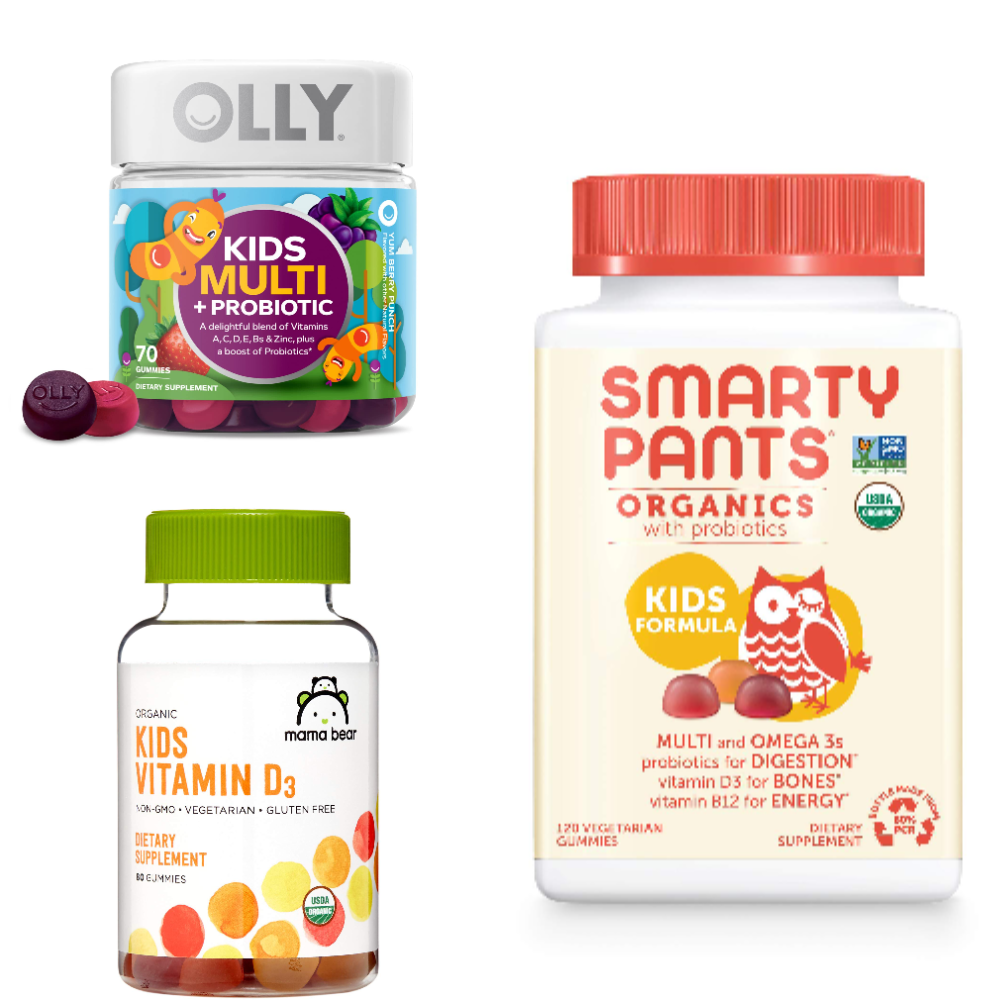

Can kids get all the vitamin D they need from the sun?
While sun exposure can help produce vitamin D, factors like location, skin color, and sunscreen use can limit production. It's important to include dietary sources and consider supplements to ensure kids get enough vitamin D.
How do I know if my child is getting too much vitamin D?
Symptoms of too much vitamin D include nausea, vomiting, weakness, and serious complications like kidney damage. Stick to the recommended dietary allowances and consult a healthcare provider if you're concerned about vitamin D intake.
Are there any vegan sources of vitamin D for kids?
Yes, some mushrooms exposed to UV light contain vitamin D, and many plant-based milks and cereals are fortified with vitamin D. Supplements are also available for children following a vegan diet.

In conclusion, Ensuring that kids receive the best natural sources of vitamin D is vital for their growth, bone health, and immune function. Sun exposure is a primary source, but it must be balanced with safety concerns. Dietary sources, fortified foods, and supplements can help prevent vitamin D deficiency. Parents should be aware of their child's specific needs and the recommended dietary allowances for vitamin D to maintain optimal health.
